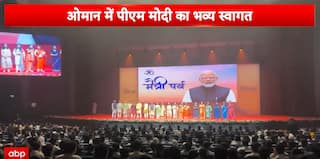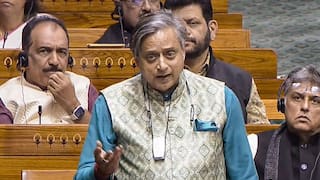Explorer
What is ‘13-point roster’? Why department-wise teaching reservation a problem in Delhi University teachers' appointments
Reservation Debate: DUTA has expressed their concern that the department-wise or 13-point roster will drastically reduce the teaching posts under the reserved categories.

Drawing the attention of the central government, DUTA had carried out a candle light march on Monday on North Campus demanding to restore 200-point roster in faculty recruitment. (Instagram)
Reservation Debate: Expressing their concern that the department-wise or 13-point roster will drastically reduce the teaching posts under the reserved categories, the Delhi University Teachers' Association (DUTA) has written to HRD Minister Prakash Javadekar demanding an ordinance on reservation roster for teaching positions in higher education institutions (HEIs). Drawing the attention of the central government, the faculty of Delhi University had carried out a candle light march on Monday on North Campus demanding to restore 200-point roster in faculty recruitment. What is the matter all about? • The Supreme Court last Tuesday upheld the Allahabad High Court verdict to implement the department-wise reservation roster for teaching posts dismissing the Central government’s special leave petition (SLP) against it. • The University Grants Commission (UGC) had announced in March last that an individual department should be considered as the base unit to calculate the number of teaching posts to be reserved for Scheduled Caste (SC) and Scheduled Tribe (ST) candidates following an order by the Allahabad High Court in April 2017. • The HRD Ministry had filed a special leave petition against the court order which was rejected by the Supreme Court order.
What is 13-point roster?
• As per University Grants Commission (UGC) guidelines, Delhi University has recently introduced a ‘13-point roster’. • According to this reservation roster, it considers each subject department as a unit to implement quotas in appointments. • This is a change from the earlier used ‘200-point roster’ which regarded the college or university as a unit. • In the 13-point roster, first three positions go to the general category, the fourth to Other Backward Classes, seventh to Scheduled Castes and the 14th to Scheduled Tribes but this means that in smaller departments, the chances of SC’s and ST’s getting reservation diminish, as reported by duexpress.com. For instance, in Sanskrit Department in Delhi University a maximum of three teachers are required per college. • Likewise, the reservation in a subject department totals to 35.71% (5 appointments out of 14) which is lesser than the constitutionally mandated 49.5% reservation. • Arguments in favour of the 13-point roster suggest that sometimes whole departments go without a single reserved candidate. • The advantage of the 200-point roster over the 13-point roster is that deficit in reservation in one department is compensated by other departments. Why teachers are protesting? • According to the teachers' body, the department-wise roster will result in a massive reduction of teaching posts for aspirants from ST, SC and OBC backgrounds, thereby drastically reducing their representation and participation in higher education. • They have mentioned the same in the letter to the HRD minister. Additionally, in the colleges of Delhi University, an unforgivable chaotic situation is going to arise unless the government moves immediately, it added. • DUTA also said they are subjected to enforced breaks after every four months and reappointed thereafter. Any change from the college or university-wise roster will change the nature of the posts against which they are working. (With inputs from PTI)Education Loan Information:
Calculate Education Loan EMI
Follow Education News on ABP Live for more latest stories and trending topics. Watch breaking news and top headlines online on ABP News LIVE TV
Read more






































